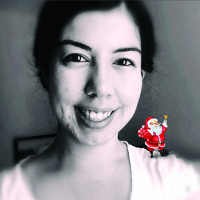
BY MELEK CANSU PETEK (ELIT/II)
petek@ug.bilkent.edu.tr
As a person who loves reading and writing, I’ve been surprisingly ignorant about other forms of art as a means of storytelling. I’ve always thought of books as the ultimate way of telling stories, which I still consider to be true; however, now that I think of it, I’ve never reflected upon other forms that are so often used to speak to us. One of those forms I’ve so negligently overlooked is movies. I’ve always loved watching motion pictures; in fact, going to the movie theater has a tranquilizing effect on me, especially when the movie is a striking one. Even so, I hadn’t pondered upon a film’s ability to tell stories until this summer: that is, until I saw “Hugo.”
I assume most of you have already seen the movie, but for those who haven’t, it revolves around a little orphan boy, Hugo Cabret. He lives in 1930s Paris in a train station, fixes clocks in lieu of his drunkard uncle, and tries to repair an automaton, a mechanical man that was left by his father. Hugo is strongly attached to this automaton, since he sees it as a connection to his late father, and believes that it will reveal a message to him once it’s rebuilt. He constantly steals from a toymaker in the station while trying to find the necessary pieces to make the automaton work and eventually gets caught. From this point on, the story takes an interesting turn. I’ll leave the synopsis here, as I have no desire to ruin the movie by giving out spoilers. Instead, I want to focus on the magic of “Hugo,” which opened my eyes, in a sense, and let me see the world of movies in a different, somewhat brighter light.
“Hugo” is directed by Martin Scorsese, a director I’ve always liked and admired, and, as one of my lovely friends rightly put it, he looks increasingly like the grandpa in “Up,” which only helps me to like him more — who wouldn’t love Carl Fredricksen? I’m no expert in the art of filmmaking, yet while watching the movie even I could tell how beautifully everything was put together. The colors of the 1930s and that vintage feeling were enough to make me consider the cinematographer a genius. Carefully chosen characters and their manners that reflected the period, enchanting music — nothing less would be expected from Howard Shore — and the acting of Asa Butterfield were all so fascinating that I instantly put “Hugo” on my list of favorite movies. Besides, although I wasn’t aware of the James Joyce references in the film, apparently there is a scene where Joyce, who actually lived in Paris during that time period, is seen at the train station. Needless to say, this subtle reference to Joyce made me very happy, as a nerdy literature student.
Leaving aside all the colors and music, what I loved the most about “Hugo” is how well it mirrors the magic of storytelling. The movie itself is filled with explorers: a boy who enthusiastically makes an effort to mend things and unravel a mystery, a little girl who goes on adventures by reading books, and an old man whose happiness depends on his motion pictures. If you’ve read any of my columns before, you already know that I freely announce myself to be a dreamer; however, I hadn’t realized how my dreams and desire to tell stories were the very channels through which my life was energized until I saw Papa Georges and his happiness while diligently working on his movies. Each of us has a part to play in this world; some are called to be mechanics like Hugo, while people like Papa Georges and Isabelle try to find the right platform to be more daring and adventurous. However, one way or another, we all have the desire to take part in life, to make our voices heard, to share our stories. That’s probably the reason why we continue to live despite all the hustle and bustle of life. My favorite scene in the movie is where Hugo explains why he has the courage and hope to go on: “I’d imagine the whole world was one big machine. Machines never come with any extra parts, you know. They always come with the exact amount they need. So I figured, if the entire world was one big machine, I couldn’t be an extra part. I had to be here for some reason. And that means you have to be here for some reason, too.”
And I believe, my fellow machine parts, that the reason we’re here is to find our means of dreaming and expressing ourselves. Therefore, I’d like to call out to your faculty of imagination in Papa Georges’s wise words: “My friends, I address you all tonight as you truly are; wizards, mermaids, travelers, adventurers, magicians….Come and dream with me.”
